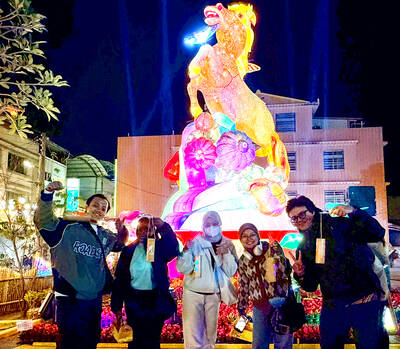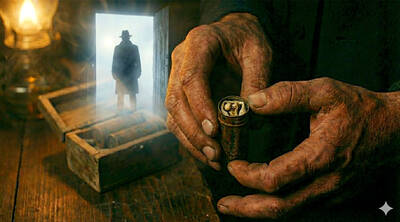Nowadays, we are more likely to type out our ideas and feelings on a computer keyboard than write with a pen, let alone a calligraphy brush. Even when we are simply looking at facsimiles of calligraphy on our computer screens, we can still follow the brush strokes, observe the structure of the characters and see how the brush would have been used, and this would tell us something of what the calligrapher was thinking, and what kind of personality they had, all wrapped up with the tactile sense and intimacy the feeling of their presence gives us. Then, even if we are unsure of the meaning behind the Chinese characters themselves, we can at least sense something of the energy of the person that wielded the brush.
This calligraphy known as Poem by Emperor Huizong (1082 AD -1135 AD) of the Northern Song dynasty now in the collection of the National Palace Museum, Taipei, and soon to be put on display, is a representative work of Huizong’s unique “Slender Gold” calligraphic style, with the largest characters on any of the 20 or so extant pieces from Huizong’s hand.
Slender gold script is essentially a form of kaishu standard script, placing extra emphasis on where the brush rests and changes direction, using slender, vigorous brush strokes. Large characters of slender gold script were difficult to write, and each character in this poem is over 10 cm tall. The forceful brushstrokes almost appear to have been carved out with a knife. The script, with its large, vigorous and elegant strokes, convey the fearless spirit one would expect of an emperor.

Photo Courtesy of Taipei National Palace Museum
The poem reads,
“Blooming flowers nestled in verdant leaves, resplendent in the courtyard. In the first light of the morning, dew drops glisten dream-like on the flowers; in the glow of sunset they seem to merge with the evening breeze. Even the world’s most talented painter would fail to capture the raw beauty of Mother Nature’s canvas. The butterfly becomes intoxicated in the scene, enraptured by fragrance carried on the wind, fluttering in the evening breeze.”
(Translated by Paul Cooper)
生活在現今的我們,在電腦鍵盤上敲入所思所想,拿筆書寫的機會是越來越少了,遑論執毛筆寫書法。但即便是透過螢幕看書法的複製圖片,依循著那一筆一畫,看架構、看用筆,我們可以鮮明地感覺到寫字者的意念與個性,以及「此曾在」的觸感與溫度,即便是看不懂中文文意,也可以感知到寫字者的能量。
現藏台北國立故宮博物院,近期將展出的宋徽宗(西元一○八二~一一三五)《詩帖》,是其獨創之「瘦金體」的代表作,也是宋徽宗傳世的二十多件作品中字體最大者。
瘦金體屬楷書,強調頓點及轉折處,筆畫細瘦險勁,因此字體越大越難書寫,然此詩帖每字逾十公分高,下筆有如刀刻之痕,字體大而剛勁俊秀,有帝王般無懼的氣概。
詩文為:
穠芳依翠萼,煥爛一庭中。零露霑如醉,殘霞照似融。丹青難下筆,造化獨留功。舞蝶迷香徑,翩翩逐晚風。
(台北時報林俐凱)

A: Harvard professor Robert Waldinger’s “7-day Happiness Challenge” includes: Day 1: Take stock of your relationships; Day 2: The secret power of an 8-minute phone call; Day 3: Small talk with strangers has big benefits. B: That’s not too hard. What’s next? A: Day 4: Why you should write a “living eulogy;” Day 5: The importance of making work friends; Day 6: Don’t cancel those social plans. B: Good ideas. What’s the final challenge? A: Day 7: Keep happiness going all year long. So, I’m inviting some friends to the Taipei Lantern Festival today to build good relationships. Wanna

★ 本文由生成式 AI 協作,本刊編輯編修。 For tourists looking for a scenic way to spend an afternoon in Kaohsiung, heading to the British Consular Residence of Takao is the perfect choice. Its elevated position allows one to take in the bustling Kaohsiung Harbor to the east and the dazzling sunset over Sizihwan Bay to the west. This elegant red-brick building also serves as a portal to the city’s rich history. Interestingly, for 70 years, many people mistakenly identified this residence as the actual consulate. The history of “Takao,” the former name of Kaohsiung, began its international chapter in the mid-19th century. As European powers

★ Bilingual Story is a fictionalized account. 雙語故事部分內容純屬虛構。 The fog came before the knock. It covered the street and pressed against the window. Chao Gung-dao lit a small oil lamp, but his makeshift hut stayed dim. Another knock. Chao opened the door. The inspector stepped inside and removed his hat. He did not smile. “You remember me?” the inspector said. Chao resented the question. The inspector looked around the small room. His eyes stopped on a wooden box resting on a low beam above Chao’s head. “What is that?” Chao stayed silent. The inspector pulled the box down and

★ 本文由生成式 AI 協作,本刊編輯編修。 Continued from yesterday(延續自昨日) https://www.taipeitimes.com/News/lang Kaohsiung’s deep connection with the sea continues to thrive, with Kaohsiung Harbor remaining a crucial hub for global shipping. In addition to the port, the city has emerged as a major player in another world-class maritime industry—yacht manufacturing, responsible for producing 80 percent of all Taiwan-made yachts. The yacht industry in Taiwan originated in the post-World War II era, when the US military presence in Taiwan provided local boat builders with guidance on making wooden yachts. The resulting craftsmanship was so exquisite that orders soon poured in. In 1977, Taiwan replaced Canada as the main yacht